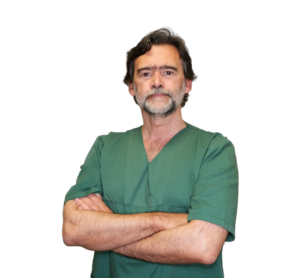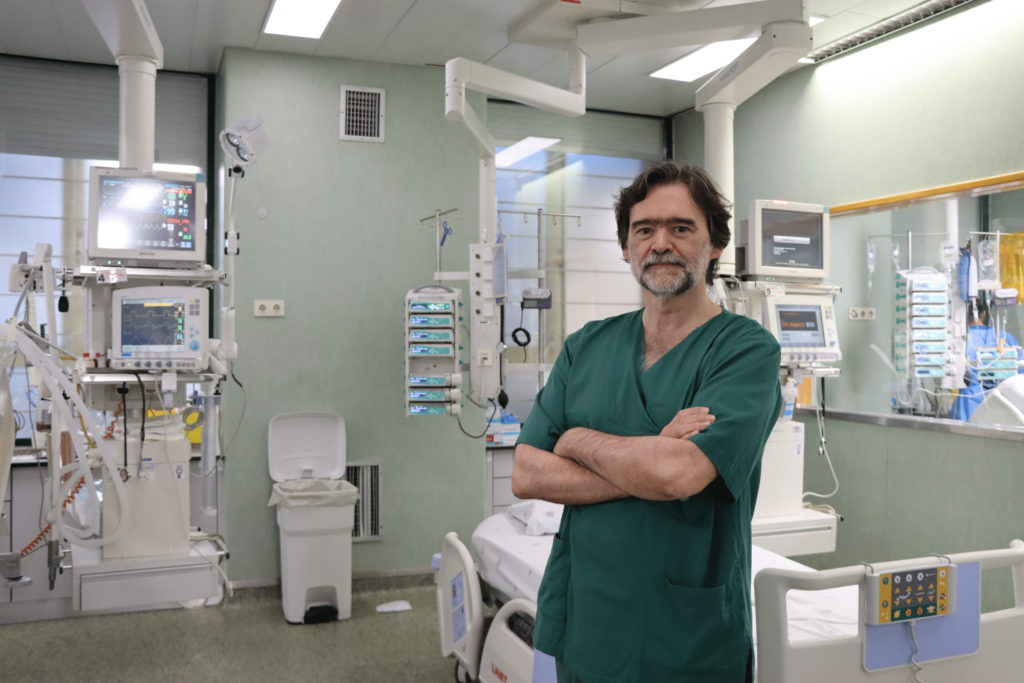To begin, could you introduce yourself and provide some background on your professional expertise?
I’m a medical doctor, trained in internal medicine and intensive care medicine with a special interest in infectious diseases. However, since 1991-1992, I’ve been primarily working in intensive care. I am based in a major hospital in northern Portugal, serving as the director of Intensive Care Medicine. Additionally, I’m an invited associate professor of medicine at the University of Porto, teaching topics related to intensive care, transplantation and antimicrobial resistance. Nationally, I lead the Priority Health Program, abbreviated to PPCIRA, which addresses healthcare-associated infections and antimicrobial resistance. These are in fact two sides of the same coin as indeed the main goal is not to reduce antimicrobial resistance but rather to reduce infections caused by these antimicrobial resistant bacteria. Since 2013, we have this national health priority program in Portugal. Through this program, all healthcare institutions are legally obliged to install an antimicrobial stewardship team. The program aims to minimize the unnecessary use of specific antibiotics, such as quinolones and carbapenems.
Why do you consider the drive-AMS project and the fight against antimicrobial resistance to be of significant importance?
The emergence of antimicrobial resistance is primarily influenced by exposure to antimicrobials, whether they are antibacterials, antifungals, or antivirals. Our primary goal is to eliminate unnecessary antibiotic use in order to reduce the emergence of resistant antimicrobials. Education alone isn’t sufficient to reach that goal, it is crucial to instigate behavioral changes in healthcare professionals to reduce unnecessary prescription of antibiotics. The drive-AMS project bridges the gap between educational and behavioral strategies, thereby providing an extra push to our initiatives. It is important to note that AMS is not about altering antibiotic prescriptions, it is about changing prescribers, about shifting medical practitioners’ perspectives and the culture of clinical services.
Another crucial aspect of drive-AMS is its collaborative nature involving six countries, four of which face significant antimicrobial resistance challenges. This collaboration, under the leadership of the University of Antwerp and Radboudumc in Nijmegen, allows sharing solutions, ideas, and implementations among participating countries, enhancing our collective fight against antimicrobial resistance.
Could you share experiences of how antimicrobial resistance has impacted patients in your professional experience?
Working in intensive care, I’ve encountered a large number of critically ill patients affected by multidrug-resistant microorganisms. In 2016, my hospital faced a severe outbreak of carbapenems-producing Klebsiella pneumoniae, particularly prevalent in surgical departments. Responding promptly, we established a triage system for patients admitted with risk factors for such resistant organisms. By conducting surveillance on admission, we’ve effectively contained intra-hospital transmission and minimized further outbreaks. This experience taught us that institutions must adapt to new challenges in antimicrobial resistance by implementing proactive measures to prevent outbreaks. After all, it is better to prevent than to respond.
How did you integrate the drive-AMS project with existing programs, and did you encounter any challenges or surprises in a positive way?
We initiated the drive-AMS project in Portugal with three pilot institutions, i.e. my own institution, and two other institutions that are geographically close to us in the north of Portugal: a general and an oncological hospital. The two general institutions are focusing on the use of antibiotics in respiratory infections, both tracheal bronchitis and pneumonia, while the oncological institute focuses on neutropenic patients that develop an infection. We formalized the liaison between national policy – the national PPCIRA program – and drive-AMS, receiving endorsement from the Directorate General of Health, offering further respectability to our efforts. We plan to expand the project to five more institutions and conduct training sessions for an extended network of hospitals: a PPS course from the University of Antwerp, and a partner course organized by us with the cooperation of the Radboudumc in January 2024.
While there was enthusiasm in integrating the drive-AMS project due to the pre-existing AMS teams, challenges, such as the lack of dedicated time and insufficient importance given by hospital administrations, have been addressed through a new law, issued in September 2022. They require hospitals to allocate specific time for antimicrobial resistance programs. Additionally, the COVID-19 pandemic highlighted the crucial role of infection control and antimicrobial stewardship teams in hospitals.
Are there any other significant lessons learned that you’d like to share?
We shouldn’t forget COVID-19. SARS-CoV-2 is still there and it is changing constantly. Other than that, the pandemic has certainly taught us several lessons that go beyond antimicrobial resistance. The first is that the on/off approach to contingency plans – with the normal state versus activated state – is wrong. Instead, we need constant adaptation, institutions should be able to constantly adapt to what is needed. Secondly, we need to manage emergent ideas in times of a crisis, when the participation of everyone with ideas is crucial. And thirdly, the importance of collaboration and interaction as a remedy to the silo mentality cannot be overlooked. Applying these lessons to antimicrobial resistance will allow for continuous improvement, a participatory approach, and the identification of quality gaps to enhance the fight against antimicrobial resistance.
Looking ahead, what are your future plans for the drive-AMS network in Portugal?
I am genuinely enthusiastic about the drive-AMS project’s potential to change antimicrobial prescription by transforming prescribers. Indeed, the project, through collaboration and behavioral strategies, can help accelerate antimicrobial stewardship in Portugal. I’m really looking forward to seeing the results of these efforts in the next three years.

About Dr. Paiva
José-Artur Paiva is the Director of Intensive Care Medicine Service at Centro Hospitalar Universitário São João, Porto and Associate Professor of Medicine at the Faculty of Medicine, University of Porto. He is also the Director of the National Program for Prevention of Infection and Antimicrobial Resistance at the Directorate General of Health. He is Specialist in Intensive Care Medicine and in Internal Medicine and has Certified Competency in Emergency Medicine and in Management of Health Systems. He is currently an active member of the European Research and Preparedness Network for Pandemics and Emerging Infectious Diseases (EU-RESPONSE) Investigators Team, funded by the EU Horizon 2020 research and innovation program and also a member of the drive-AMS Project, also EU funded, that aims to promote and maximize antimicrobial stewardship in Europe.

